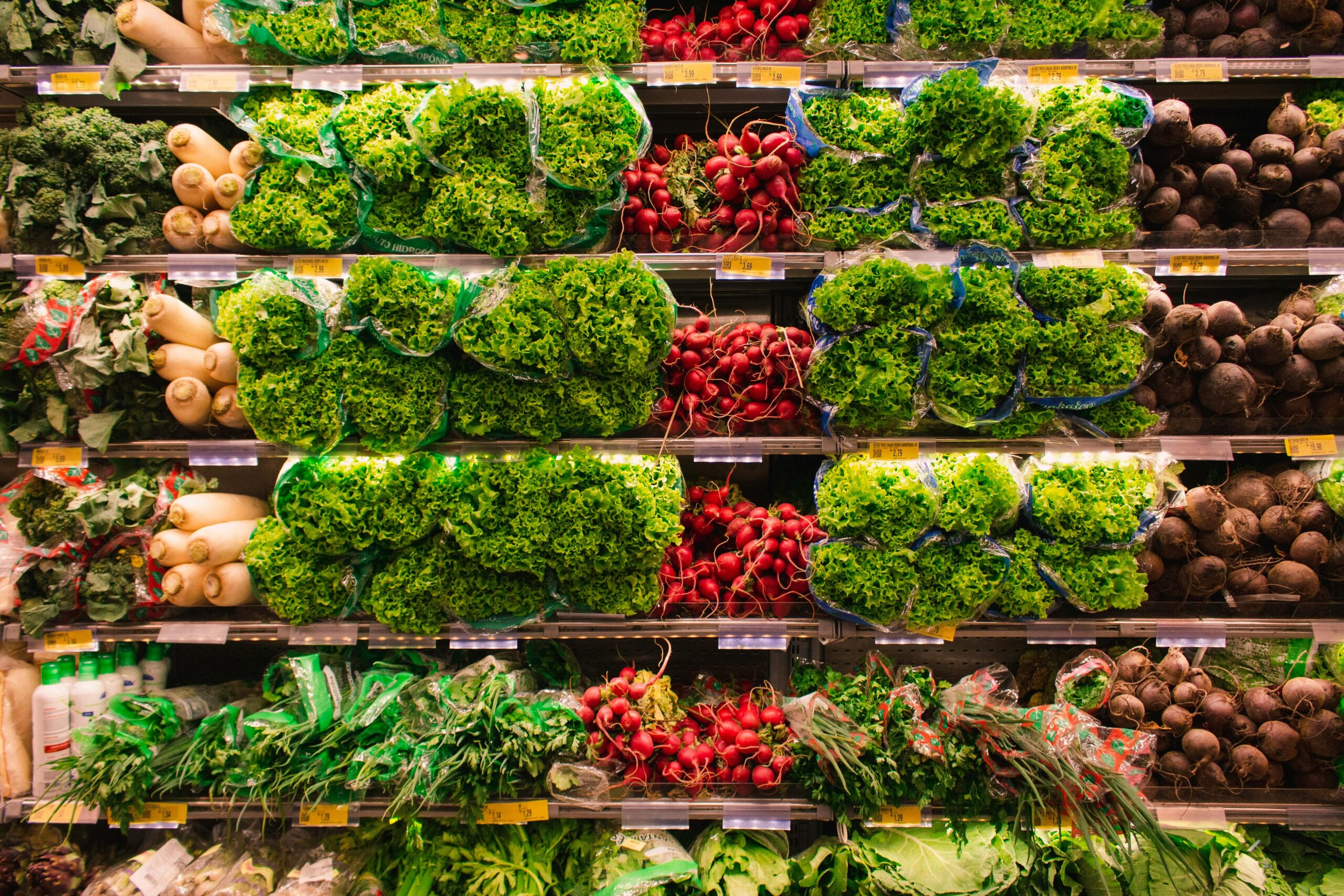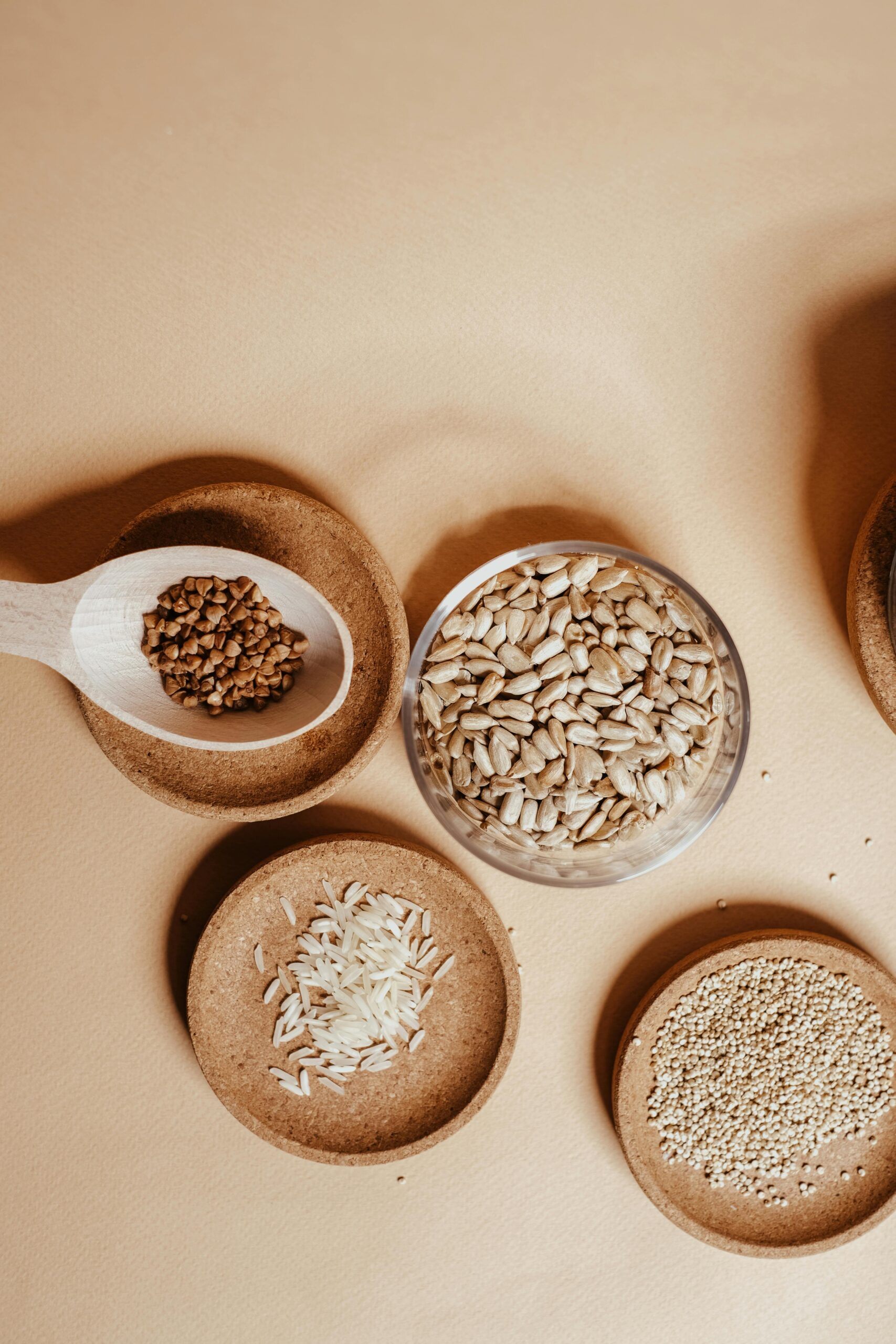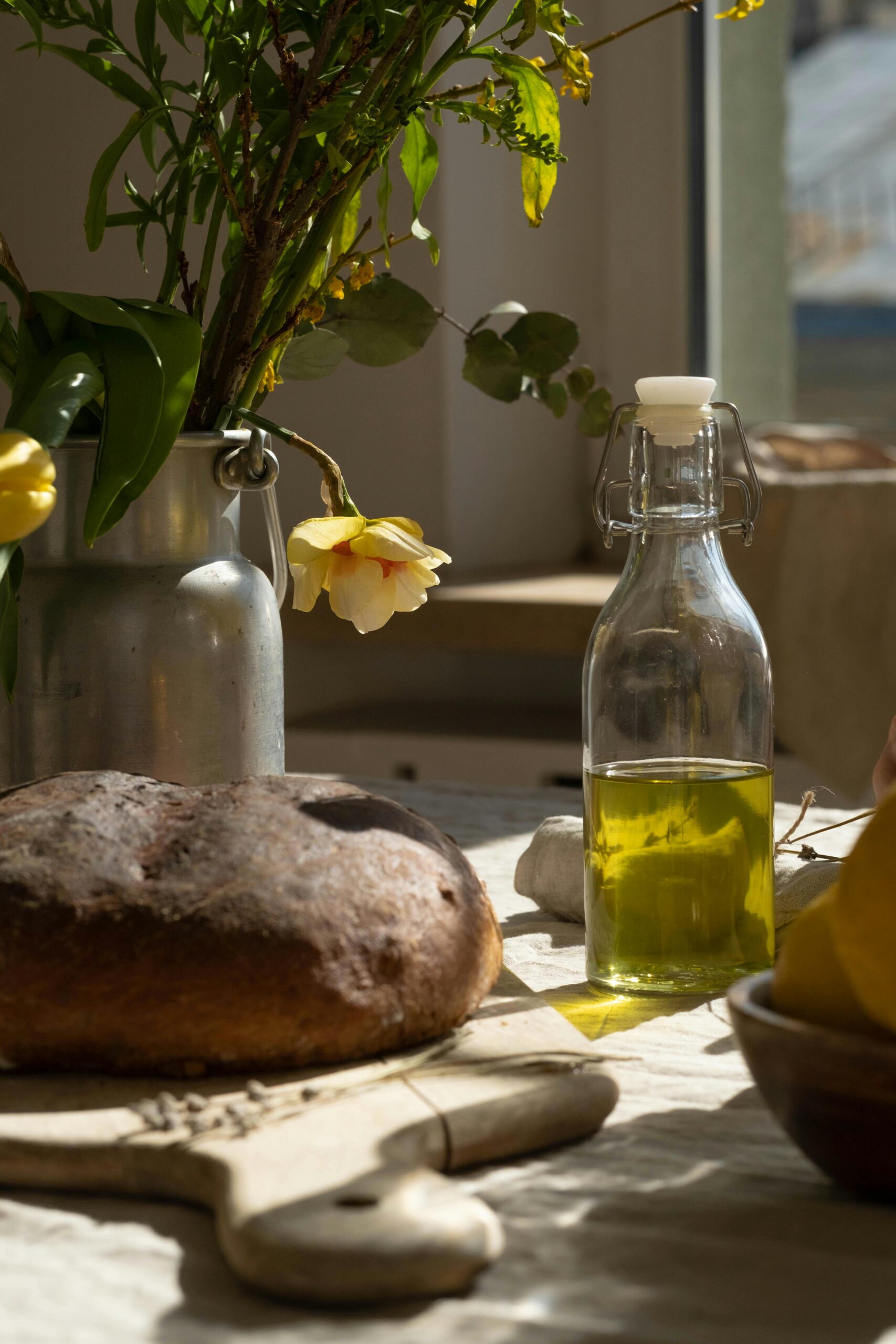The Astonishing Way Becoming an Empty Nester Changed My Diet
There’s a new rhythm to my days, and I’m still learning how to dance to it.
My kids have left for college, the house is quieter than it’s ever been, and suddenly I’m what they call an “empty nester.” I always thought that phrase belonged to people further along in life, people with gray hair and retirement plans, but here I am—still young enough to feel restless, but no longer in the whirlwind of school schedules, carpool lines, and family dinners.
It’s an odd, in-between place. My time is mine again, fully and completely, and while that sounds freeing on paper, in reality it feels awkward. After years of structuring my life around my children, it’s strange to wake up and realize the only person I’m accountable to is me. I don’t have to negotiate dinner plans with picky eaters. My decisions are now my own, and that truth is both exciting and disorienting.
The very first shift I noticed in this new chapter wasn’t anything dramatic—it was my eating habits. For years, the kitchen was where our family gathered. It was the hum of pasta boiling, the smell of garlic hitting hot olive oil, the chatter around the table that filled me up as much as the food itself. Now, with no one waiting for dinner, I’ve grown lazy. Why pull out pots and pans for a “real” meal when there’s no one else around to share it? Why slice vegetables or simmer sauces when I could just snack and call it a day?
Meals that once anchored our family routine suddenly feel optional. I wander into the kitchen at odd hours, stand in front of the fridge, and wonder what to do. Some nights, I’ll put together a halfhearted salad. Other nights, I’ll grab crackers and cheese and pretend it counts. The ritual of cooking, once so central, feels like it disappeared the moment my kids walked out the door with their packed bags.
But here’s the thing I didn’t expect: in losing that old rhythm, I’ve realized how much I miss it—not just the act of cooking, but what it represented. Food was never just food in my house. It was connection. It was tradition. It was love disguised as pasta and roasted chicken and Sunday pancakes. And now that I’m here, standing in the quiet of an empty kitchen, I’m beginning to understand that I still need that connection, even if it looks different now.
This stage of life is teaching me that rituals matter—not because they keep the house running, but because they keep me rooted. I’m realizing that cooking doesn’t have to be about feeding other people. It can also be an act of care for myself, a way of saying, “I matter enough to sit down to a real meal.”
The truth is, I had my kids young, so I never really had a long season of cooking just for me. My adult life began with tiny hands tugging at my shirt and hungry mouths waiting for dinner. I moved straight from being someone’s daughter to being someone’s mom, skipping that middle stretch of figuring out what I wanted for myself. And now, finally, it’s here. The space. The time. The quiet.
At first, it felt like loss. The silence was heavy. The table felt too big. But now I’m starting to see it as possibility. I have the chance to create new rituals that belong entirely to me. To cook what I crave, not just what’s quick or what pleases everyone else. To linger over a meal without worrying about who needs to be driven to practice. To pour a glass of wine, set a single place, and savor the fact that I’m still worthy of slow, intentional meals.
Embracing Life as an Empty Nester
This doesn’t mean every night has to be a grand production. Some evenings, I might roast a tray of vegetables, drizzle them with good olive oil, and eat them with bread. Other nights, maybe I’ll try a recipe I never dared when the kids were around. I’ve been experimenting with flavors that feel adventurous to me—spices I rarely used, vegetables my kids never liked, dishes that require a little patience.
It’s not about impressing anyone. It’s about rekindling that spark in myself, the one that gets excited about chopping fresh herbs or waiting for dough to rise. Food can be joy again, not obligation.
And beyond food, I’m learning this season of life is about redefining rituals in general. Morning tea in my favorite chair. Evening walks when the sky turns pink. A notebook left open for thoughts that need space to breathe. All the little things that make life feel deliberate instead of accidental.
I think that’s what’s most unsettling and most exciting about becoming an empty nester at a younger age—I have to rewrite the script. I don’t fit the stereotype of the parent who collapses into retirement hobbies. I still have energy, curiosity, and years ahead of me to shape into something meaningful. But with that blank canvas comes the question: what now?
Right now, my answer begins in the kitchen. If food was once how I loved my family, maybe food can now be how I learn to love myself. If dinner once brought us together, maybe now it can bring me back to me.
So yes, I’m still figuring it out. Some nights, I’ll stand in front of the fridge like a lost tourist. Other nights, I’ll sit down to a meal I made with intention and think, this is what it means to be present in my own life.
And maybe that’s the whole point of this new chapter: learning to take the time, even when no one else is looking. Learning to make something beautiful out of the quiet. Learning that even an empty nest can still be full—full of flavor, full of ritual, full of possibility.
Because life doesn’t end when the kids leave home. It changes. And in that change, there’s a chance to rediscover not just food, but myself.
Rediscovering Identity Beyond the Kitchen
The kitchen might be the first place I’ve noticed change, but it’s hardly the only one. When my kids left, it wasn’t just the dinner table that felt emptier—it was me. For so long, I was defined by being “Mom.” It wasn’t a role I wore; it was my very skin. I was the chauffeur, the counselor, the planner, the chef, the one who remembered birthdays, permission slips, and dentist appointments. My days were measured in drop-offs and pick-ups, in what groceries we needed, in the steady hum of keeping a family running.
Now, the absence of those responsibilities has left me with a startling question: Who am I when I’m not needed in those ways?
It’s not that motherhood ends when the nest empties. It simply changes shape. My kids still need me, but in a different language now: the occasional late-night phone call, the text asking for advice, the visit home that feels both too short and just right. I’m still their anchor, but I’m no longer their entire orbit.
And in that shift, I’ve begun to notice the other parts of me I pushed aside. The books I bought but never cracked open because there was always homework to supervise. The languages I dreamed of learning but never found the time for. The trips I promised myself I’d take “someday.” Well, someday isn’t some far-off dream anymore. It’s right now, waiting at my doorstep.
The Uneasy Beauty of Rediscovery
Rediscovery doesn’t come neatly packaged. Some days I wake up giddy, like I’ve been handed a blank canvas and all the paints in the world. Other days I feel restless, unsure of what to do with this freedom.
But in both the restlessness and the excitement, there’s movement. I’ve started picking up the hobbies I once abandoned—dusting off my camera, pulling out my running shoes, sketching in notebooks I used to keep tucked away. It’s funny how those little parts of myself were always there, waiting patiently beneath the surface, just needing space to be invited back.
Travel has taken on new meaning too. For years, vacations were family productions—packing lists, snack bags, keeping the peace in the backseat. Now, I find myself daydreaming of trips just for me. I imagine walking through markets in Florence, tasting wines in Napa, hiking trails that I never would have attempted when I had kids in tow. Travel feels less about logistics now and more about curiosity, about finding out who I am in places I’ve never been.
Friendships are shifting as well. During the school years, so many of my connections were with other parents—bound together by soccer schedules and classroom volunteering. Now, I find myself seeking out relationships built not on shared obligations but on shared passions. It feels vulnerable, almost like dating, to reach out and say: Do you want to grab coffee? Do you want to walk together? Do you want to see if we connect beyond the school parking lot? But it’s worth it.
Writing a New Script
What I keep circling back to is this: I get to decide what this chapter looks like. It doesn’t have to be a second-best season, a lesser life lived in the shadow of the years when my kids were home. It can be vibrant in its own right.
So I’m giving myself permission to try. To sign up for a class just because it sparks curiosity. To spend an afternoon in a bookstore without rushing. To learn to say yes to opportunities that scare me a little. To make my days deliberate, not accidental.
There’s no perfect roadmap for being an empty nester, especially when you’re younger than the stereotype. But maybe that’s the gift. There’s space here to write a script that isn’t dictated by what anyone else expects.
And maybe, just maybe, the story I write for myself now will inspire my kids too. Maybe when they see me chasing joy, creating rituals, and leaning into possibility, they’ll understand that life is about more than just surviving the season you’re in. It’s about growing into the next one with grace, curiosity, and courage.
Carrying Purpose Into This Season
As much as this new chapter is about rediscovering myself, it’s also about asking a bigger question: What kind of life do I want to model for my children now that they’re grown & I’m an empty nester?
When they were little, they learned from what I did more than what I said. They saw me show up at games, make meals, balance work and family, hold everything together even when I felt stretched thin. That was the example I gave them then.
But now, the lesson looks different. I want them to see that life doesn’t stop at milestones — it evolves. I want them to know it’s okay to reinvent yourself, to step into new passions, to chase joy even when the world expects you to slow down.
Legacy isn’t only about what I leave behind; it’s about what I live out in front of them right now. If they see me exploring, laughing, building, and growing in this stage, then maybe they’ll carry that same courage into every season of their own lives.
I also think about purpose in a broader way. With my time freer, I have space to give back — whether that means mentoring, volunteering, or simply being more present for people around me. The years of running on empty have taught me that purpose doesn’t have to be grand to be meaningful. Sometimes it’s as simple as showing up with kindness, listening well, or creating beauty in small, ordinary ways.
This season, then, isn’t just about filling the silence of the house. It’s about filling my days with intention. It’s about asking not only Who am I now? but What do I want to contribute while I’m here?
And maybe that’s the gift of the empty nest: it doesn’t strip away purpose — it clears the space for a new one to take root.
Tips for Embracing Life as an Empty Nester, the Mediterranean Way
1. Cook for Yourself Like You’re Worth It
One of the biggest shifts as an empty nester is realizing you’re still worth the effort of a beautiful meal. It’s tempting to snack on crackers or call it dinner with a bowl of cereal, but the Mediterranean lifestyle teaches us something different: every meal matters. In Italy, even a simple plate of pasta is served with intention. In Greece, a salad of cucumbers, tomatoes, and feta is plated like a small celebration.
Try stocking your kitchen with Mediterranean staples — extra virgin olive oil, fresh herbs, seasonal vegetables, crusty bread. Even if it’s just for you, drizzle that olive oil generously, slice the ripe tomatoes, and sit down at the table. Cooking for yourself isn’t indulgence; it’s self-respect.
2. Adopt a Ritual of Gratitude
Meals in the Mediterranean often begin with a pause — sometimes a prayer, sometimes a toast, sometimes just a breath. That small act transforms eating into something sacred. Science backs this up: studies show gratitude lowers stress, improves heart health, and even boosts immunity.
As an empty nester, creating this ritual is powerful. Before you take a bite, pause. Say a prayer of thanks. Whisper gratitude for the farmers who grew the food, for the hands that prepared it, for the chance to sit at your table. This isn’t just a habit; it’s a grounding practice that connects faith, science, and nourishment.
3. Take a Daily Passeggiata
In Italy, the passeggiata is more than a walk — it’s a ritual of community and slowing down. After dinner, families stroll through town squares, couples walk arm in arm, neighbors greet each other. It’s movement, but it’s also connection.
You can bring this Mediterranean ritual into your own empty nest life. After dinner, step outside. Take a slow walk around your neighborhood. Leave your phone behind and notice the sky, the trees, the rhythm of your own breath. Studies show that walking after meals improves digestion and lowers blood sugar — but more than that, it turns an ordinary evening into a chance to savor life.
4. Nourish Your Curiosity
The Mediterranean way of life isn’t only about food — it’s about lifelong curiosity. In Sardinia, elders still garden, in Ikaria they still dance, in Crete they still learn and pass down traditions. Longevity experts say that curiosity and continued learning keep the mind young.
As an empty nester, this is your chance to return to the dreams you once set aside. Sign up for that Italian cooking class. Try learning a few words of Greek or Spanish. Start a travel journal and plan a trip to the Amalfi Coast or Provence. Curiosity is fuel — it keeps life vibrant and reminds you that discovery doesn’t end when the kids leave home.
5. Build Community Intentionally
In the Mediterranean, meals are rarely eaten alone. Whether it’s a quick espresso with a friend in Rome or a long Sunday lunch in Spain, community is built at the table. Research shows that shared meals reduce stress and increase happiness.
For empty nesters, this means being intentional about connection. Host a small dinner, even if it’s just soup and bread. Meet a friend for coffee. Join a local group or invite neighbors to share a bottle of wine. You don’t need a bustling household to have a full table. The Mediterranean reminds us that joy multiplies when shared.
6. Honor Faith and Purpose
Faith is woven naturally into Mediterranean life — blessings before meals, feast days celebrated with food, quiet chapels tucked into seaside towns. For many in these regions, faith and daily life aren’t separate. They’re intertwined.
This season of empty nesting is a chance to return to your own faith practices. Maybe it’s prayer before meals, lighting a candle, or volunteering in your community. Purpose doesn’t have to be grand to be meaningful. Research shows that people who carry a sense of purpose live longer, healthier lives. And spiritually, purpose is what anchors us when everything else changes.
7. Slow Down — On Purpose
If there’s one lesson the Mediterranean offers, it’s that slowing down is not laziness — it’s wisdom. Meals stretch on for hours, coffee is sipped slowly, afternoons are left open for rest. Life is not meant to be rushed; it’s meant to be savored.
As an empty nester, this can be your greatest gift. Light a candle at dinner, even if it’s just for you. Brew tea and drink it without multitasking. Put on music and cook without rushing. These are not luxuries — they are practices that reframe your life as something worth savoring. The Mediterranean calls it dolce far niente — the sweetness of doing nothing. And in that stillness, you often find the richest kind of abundance.







